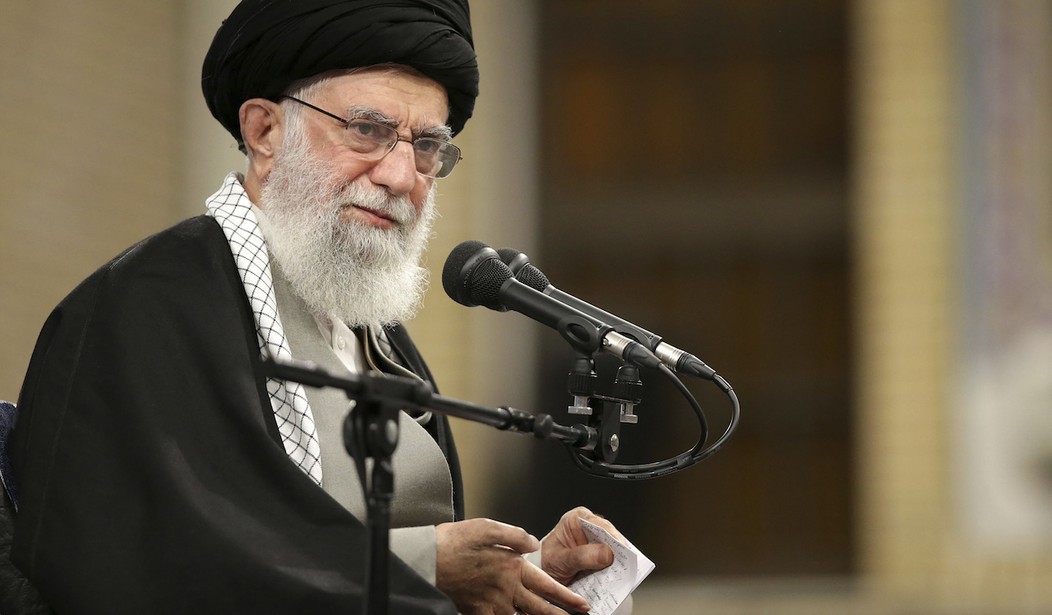For anyone tracking the Biden administration's policies in the wake of Iran-backed Hamas terrorists' barbaric October 7 assault on Israel, the president's deference to the terror-sponsoring regime in Tehran has been especially confounding — and exceedingly dangerous to Americans as well as Israelis.
In a new letter led by U.S. Senator Tim Scott (R-SC) — ranking member on the Senate Banking Committee — and joined by a handful of his Republican colleagues in the upper chamber, Secretary of State Antony Blinken and Treasury Secretary Janet Yellen face grilling over the decision to issue waivers allowing Iran access to billions of dollars which, due to the fungibility of money, are all but certainly being used to support Iran's ongoing sponsorship of bloodthirsty terrorists.
Expressing concern about "the Biden administration’s ongoing strategy of appeasement in response to Iranian aggression," the lawmakers' letter quotes General Michael Kurilla, commander of U.S. Central Command, who recently testified to Congress that the Iranian regime "is not paying the cost" for its terror-spreading activities.
In mid-March, the letter reminds, the Biden administration again failed to make Iran pay for the actions of its terror proxies — which have put American service members among those wounded and killed in attacks — when his administration issued "yet another Iranian sanctions waiver."
The March 12 action by the administration to waive sanctions "makes restricted Iranian funds more accessible to the Ayatollah's regime at a time when Iranian-backed aggression in the region is at a peak," the letter emphasizes. What's more, "the administration appears to be disregarding congressional intent that any payments made to Iran remain severely restricted."
In addition to Sen. Tim Scott, the concerns raised in the new letter are shared by cosigning Senators Chuck Grassley (R-IA), Tom Cotton (R-AR), Mike Crapo (R-ID), Kevin Cramer (R-ND), Pete Ricketts (R-NE), Ted Budd (R-NC), Ted Cruz (R-TX), Marco Rubio (R-FL), Rick Scott (R-FL), Katie Boyd Britt (R-AL), Todd Young (R-IN), and John Cornyn (R-TX).
It seems like common sense to most people, but not Biden nor his administration apparently, that Iran should not be rewarded for its actions — to promote, fund, and encourage terror attacks on Israeli, American, and other Western targets in the Middle East and around the world — with greater access to more funds with which to enable violence against America and its allies. Yet that's exactly what the Biden administration has done. Repeatedly. It's a masterclass in how not to enact deterrence, similar to how Biden failed to deter Russia's invasion of Ukraine.
While Biden and his administration insist he's working on deterrence in the Middle East, the fruits of enacted policies prove otherwise. Even worse, Biden has left Congress as well as the American people largely in the dark about what his supposed plan is to deter Iran and its terror proxies while flaunting congressional requirements dealing with Iran accessing funds.
As the Senators remind Blinken and Yellen, "the Iran Threat Reduction Act amended section 1245(d)(4) of the FY12 NDAA to require that any funds due to the Iranian regime for petroleum sales must be kept in bank accounts in the country purchasing Iranian oil, in locally dominated currency from which the regime could draw for the purchase of commercial goods" — a requirement "intended to limit the Iranian regime’s ability to access hard currency from these sales."
Despite Congress placing such restrictions, the concerned lawmakers note that the Biden administration has "issued three waivers related to Iraqi electricity payments that authorize funds to be transferred out of Iraq and for those funds to be denominated in euro." That is, the Biden administration has gone out of its way to give Iran a better footing to support terrorism — and the consequences of Biden's so-called "deterrence" are deadly.
"Iranian proxies have sustained a violent campaign in the Red Sea and across the Middle East," senators remind in their letter. "This campaign not only threatens to disrupt critical supply chains and drive up the cost of goods, but it also relentlessly targets U.S. service members—to deadly effect. It is unfathomable that this is the context in which the administration determined that it was within the national security interest of the United States to waive sanctions on restricted Iranian funds, making them more accessible to the regime," they add.
Calling out claims made by Biden and his administration, the lawmakers demand answers from the president justifying his decision to keep waiving sanctions for Iran and his rationale for making the inexplicable decisions. Among them, "how the transfer of restricted Iranian funds out of Iraq and into accounts in Oman, France, and Italy is in the national security interest of the United States" and "why the administration would provide Iran with increased access to hard currency, particularly euros, which are far more valuable to Iran than locally demonstrated currencies like the Iraqi dinar."
"The United States should be restricting Iran's access to currency abroad," the senators emphasize. "Instead, your administration is expanding it, all while continuing to share limited information on a strategy to restore deterrence in the Middle East with Congress or the American people."

